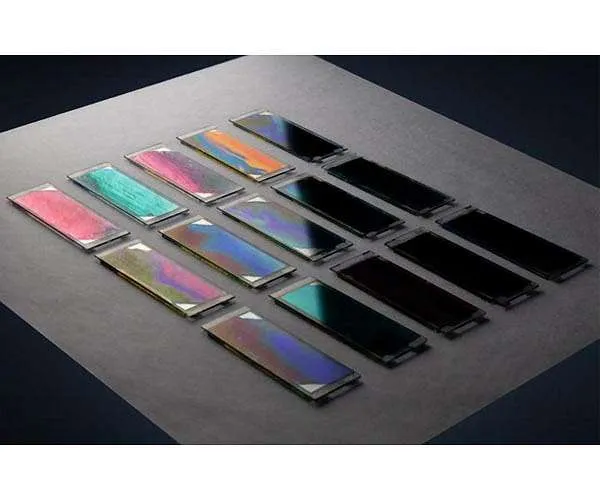Machine-learning to forecast the efficiency of natural solar cells
- Picture looking for the optimal setup to construct a natural solar cell made from various polymers. Exactly how would certainly you start? Does the energetic layer demand to be extremely thick, or very slim? Does it require a large or a small amount of each polymer? Understanding exactly how to predict the particular structure and also cell design that would cause optimal efficiency is one of the best unresolved problems in products scientific research.

This is, partially, as a result of the truth that the device efficiency relies on several aspects. Currently, scientists from the Universitat Rovira i Virgili (URV) focused on Artificial Intelligence have actually worked together with researchers from Institute of Materials Science of Barcelona, specialized on materials for power applications, to integrate the experimental information points that they gather with artificial intelligence formulas as well as make it possible for an unprecedented predicting ability of the efficiency of organic solar cells.
ICMAB scientists, led by Mariano Campoy-Quiles, have generated multiple information collections by using a new experimental approach that enables them to have a lot of samples in just one, speeding up the moment compared to traditional methods. After that, machine-learning versions are used to pick up from those data collections and predict the performance of much more products, such as unique organic semiconductors synthesized at the group of Prof. Martin Heeney at Imperial College London.
This study might be the first of many in the field combining expert system and high-throughput experiments to forecast the optimum conditions of certain materials and also devices.
Obtaining multiple experimental information points
One of the essential aspects of this study is that scientists have the ability to create large and also significant datasets at minimal experimental initiative. This is an essential facet toward the success of machine-learning modelling in order to acquire accurate as well as trusted models and forecasts. Researchers make use of a technique based on combinatorial screening in which they produce samples with gradients in the parameters that mostly influence the performance of organic solar cells (i.e. composition and also thickness).
" When using a traditional approach, a sample gives you with information regarding just one factor. However, utilizing our approach we can get between 10 and 1000 times much more points. This enables, on the one hand, to evaluate the solar possibility of a product regarding 50 times faster than with traditional approaches. On the other hand, it supplies big stats and also a significant collection of information (thousands of hundreds of points) that enable us to accurately train various expert system formulas" states Mariano Campoy-Quiles, ICMAB researcher as well as co-author of this study.
Expert system algorithms to anticipate the behavior
" Within the broad area of AI, in this work we use machine-learning, which is a term that collects all type of formulas which give equipments (i.e. computers) the capacity to learn from an offered set of data, yet not always to take self-governing choices. Here, we exploit the even more statistical vision of AI to draw anticipating models from our huge speculative datasets" describes Xabier Rodriguez- Martinez, ICMAB researcher as well as very first writer of the research study.
Expert system formulas in the field of products science are mostly used to seek actions patterns as well as to even more establish anticipating models of the behavior of a family members of products for an offered application. To do so, an algorithm is first educated by subjecting it to real information to produce a model algorithm. The design is then confirmed with other data points not utilized to produce the version, yet from the same classification of materials. As soon as verified, the algorithm is related to forecast the habits of various other comparable products that are not part of the training neither verifying collection.
In this details research study, AI algorithms are trained with thousands of factors acquired with the high throughput method to examine and forecast the various variables that determine the effectiveness of an organic solar cell. "The use of AI algorithms was specifically difficult in this situation", clarifies Roger Guimera, ICREA Professor and researcher from URV's Department of Chemical Engineering as well as co-author of the research study, "because the volume and also complexity of the information, as well as because the ultimate goal is to extrapolate to new products that have actually never ever been evaluated."
Achievements and future challenges
This job stands for two great achievements. On the one hand, developing AI versions that predict exactly how effectiveness relies on most of the natural solar cell criteria. The level of prediction is really high even for products that have not been utilized in the training collection.
" The second essential factor is that thanks to AI, we have actually established which are the physical specifications that influence to a greater degree this actions" says Mariano Campoy-Quiles, and also includes "In certain, we have actually seen that one of the most important specifications that establish the optimal composition are the digital gap of each product, as well as just how balanced the fee transportation remains in every one."
Scientists believe that the outcomes and the methodology created in this study are extremely essential to lead theoretical researchers regarding what to take into consideration when developing future logical designs that try to establish the effectiveness of an offered system.
"Our following obstacle is to understand far more complex systems. The more facility the system, the better AI can be" ends Campoy-Quiles.
Also read
- CNNP Optoelectronics brings utility-scale perovskite modules out of the lab
- Low-Temperature Sequential Deposition Lifts Inverted Perovskite Solar Cells Efficiency Record
- Self-Assembling Molecule Breakthrough Brings Commercial Perovskite Solar Closer to Market
- Camphor Additives Boost Perovskite Solar Cell Efficiency
- NUS Sets Record With 26.4% Perovskite-Organic Solar Cell
